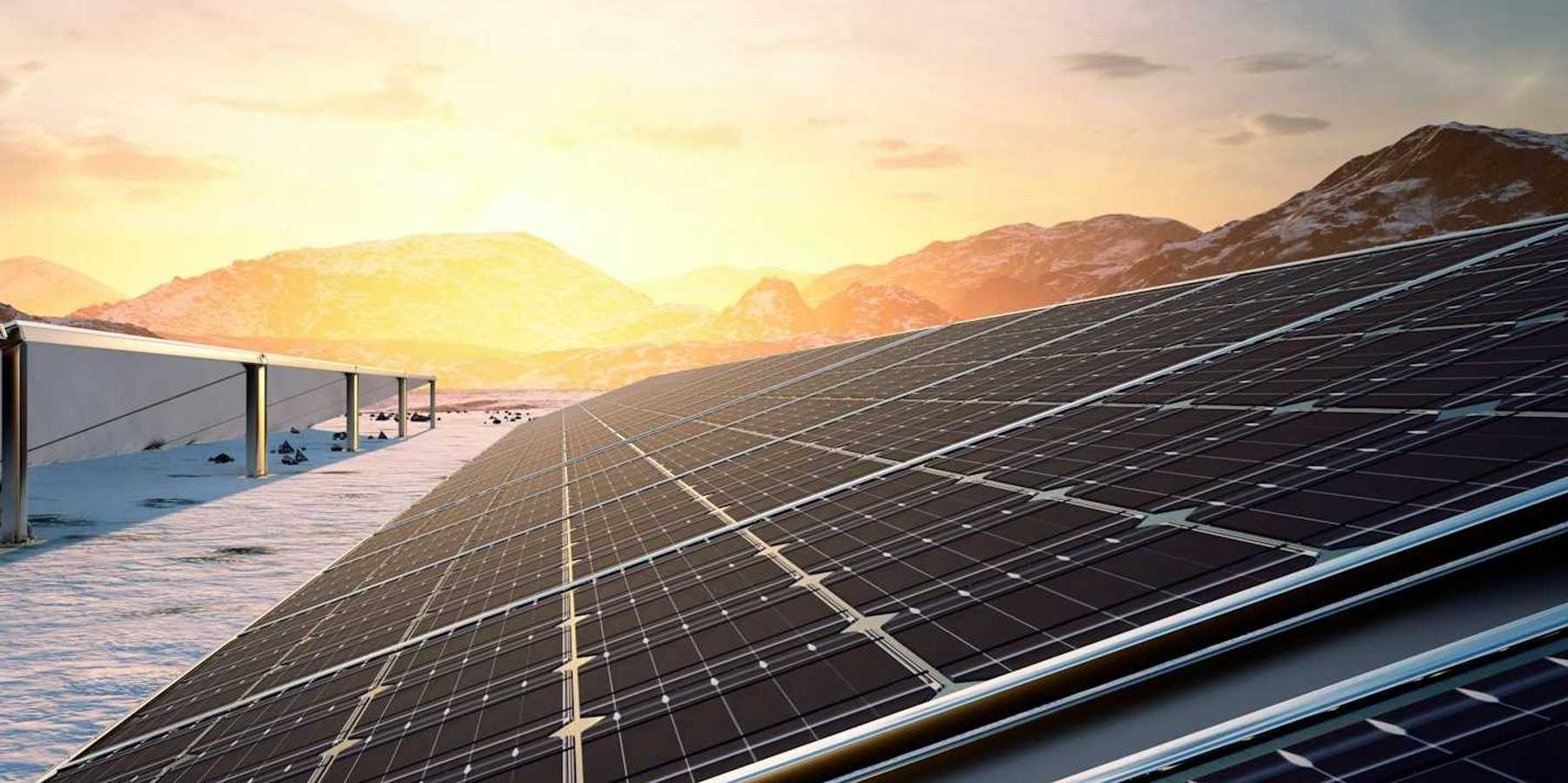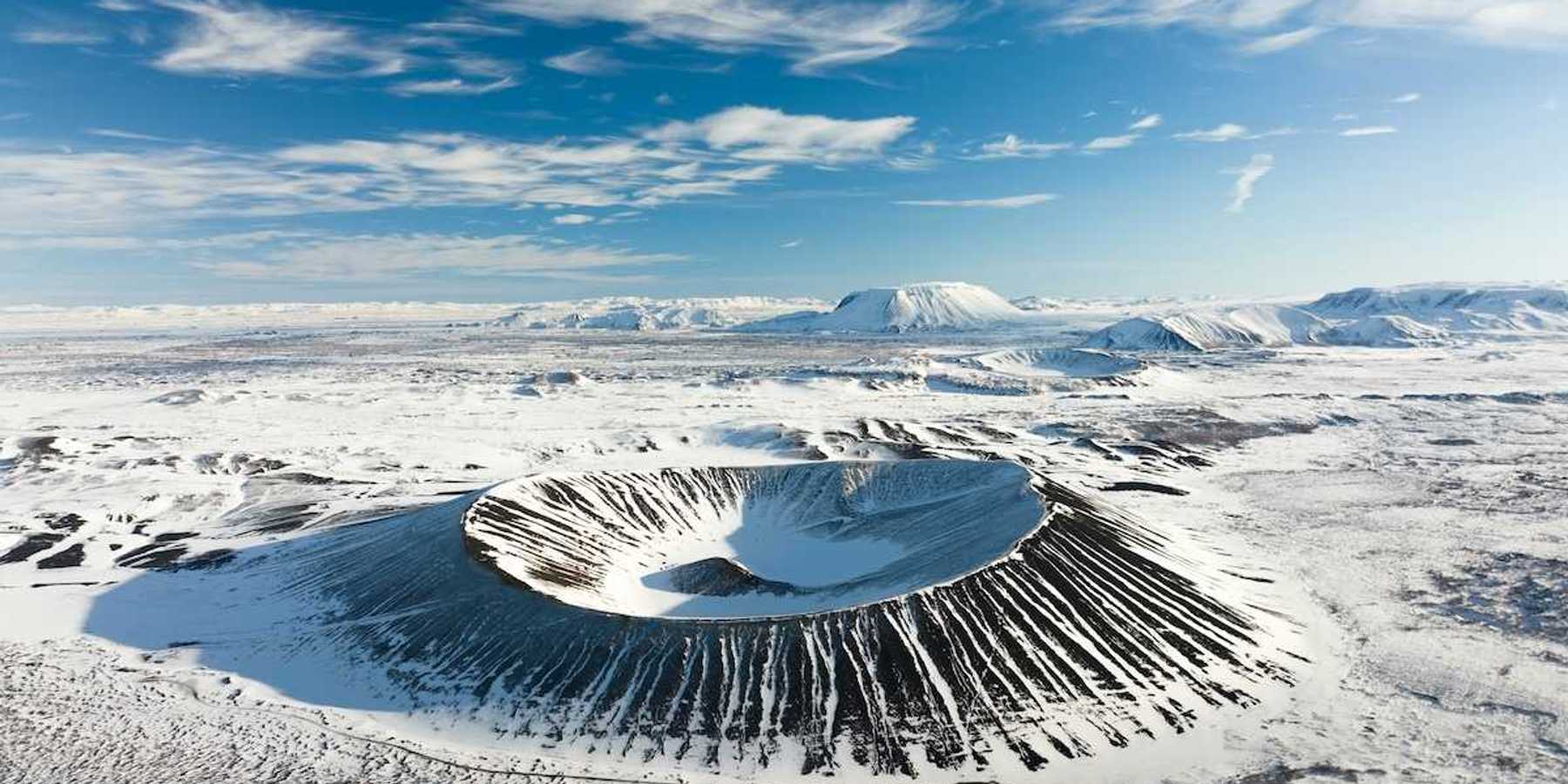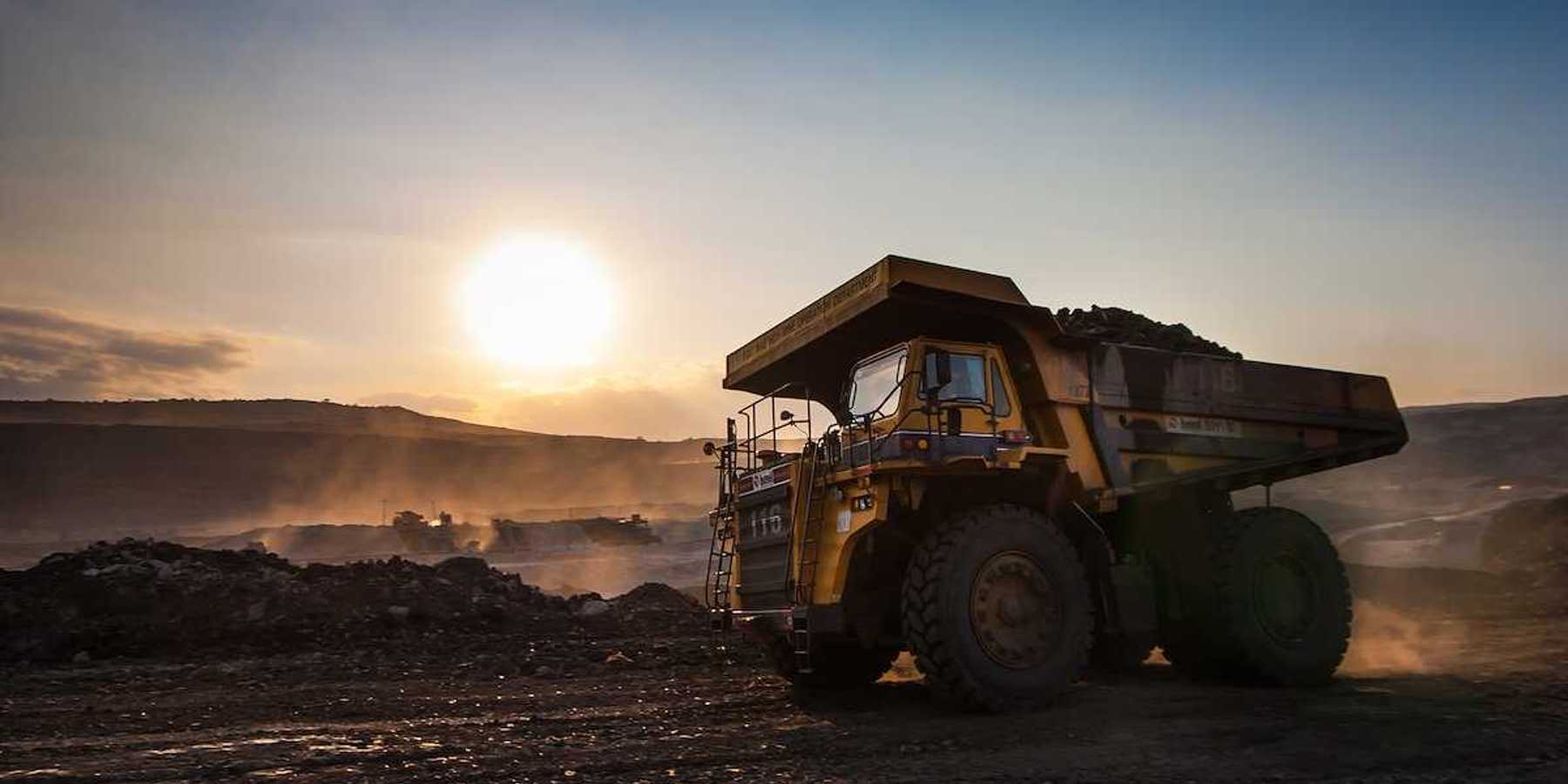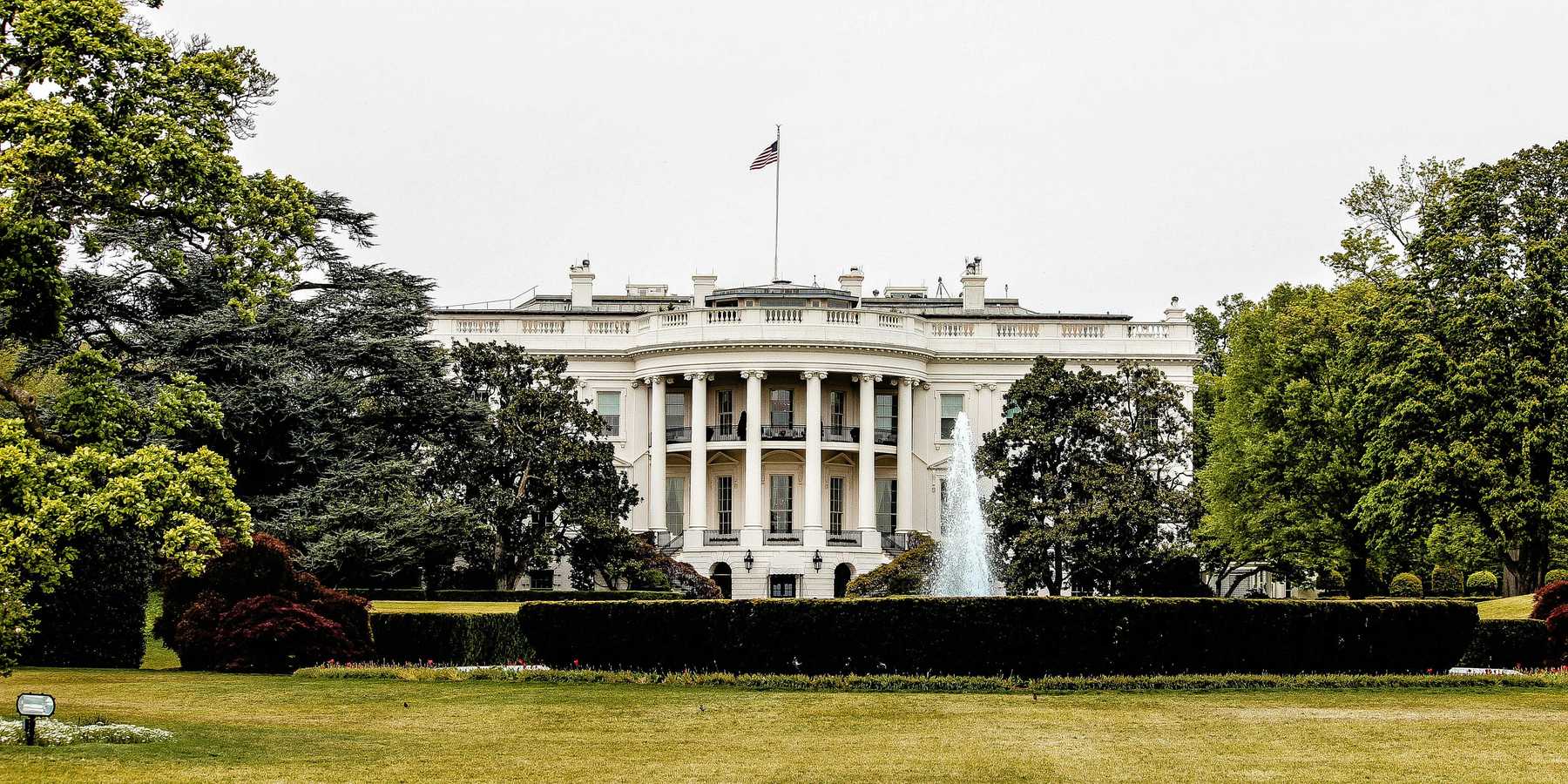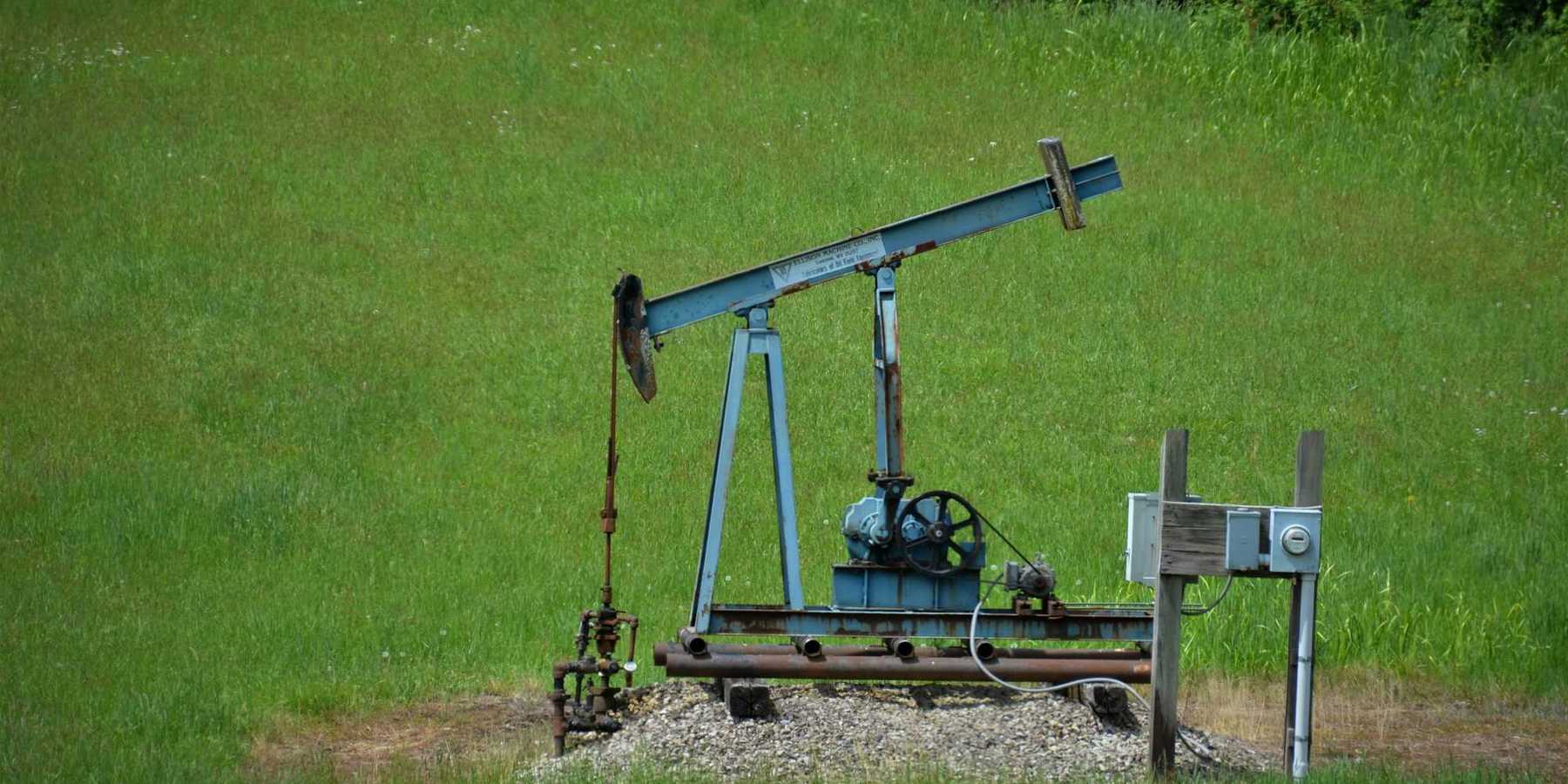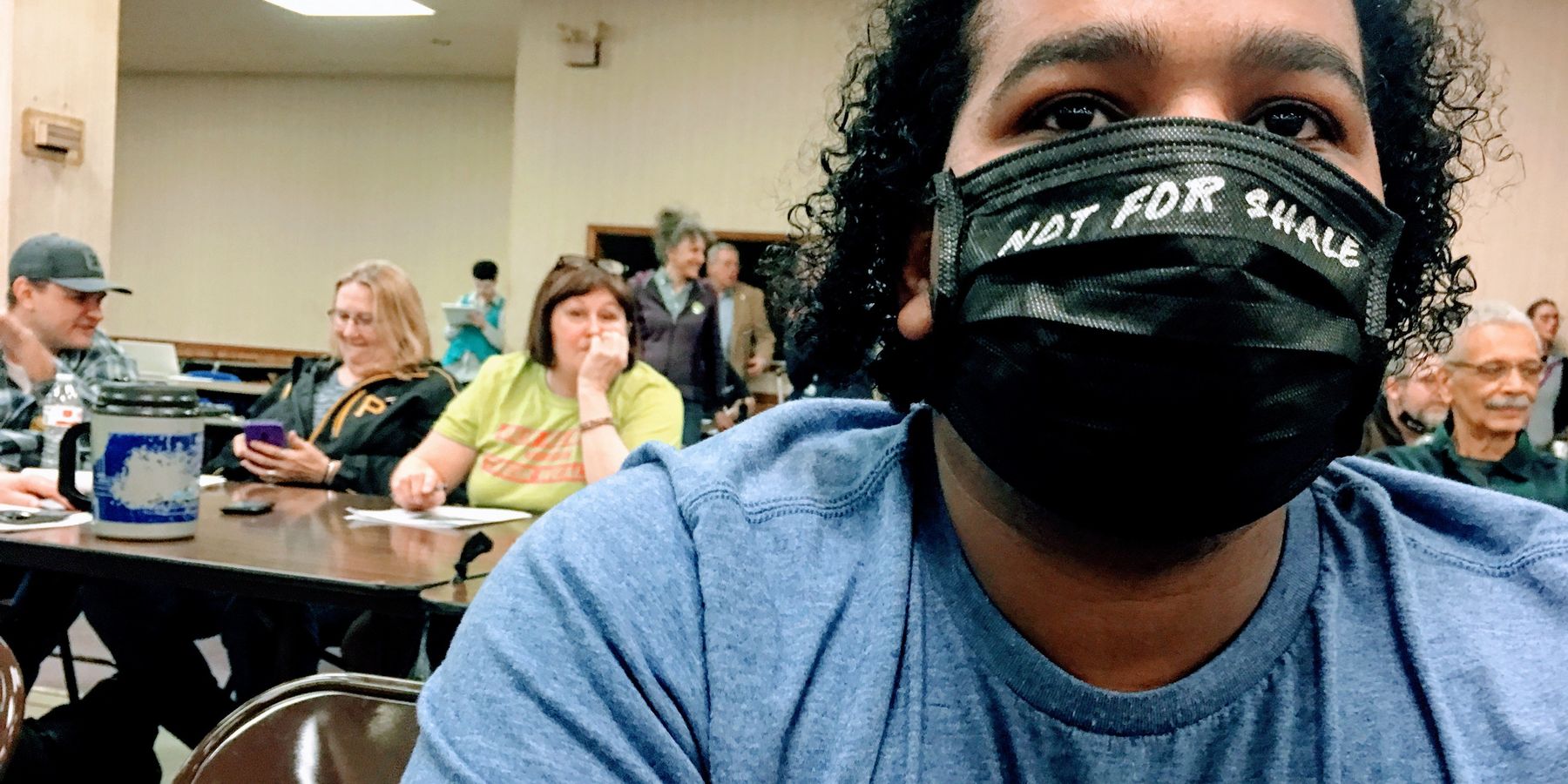
Residents shout down oil and gas execs over fracking at US Steel mill
"We don't want you here. Go somewhere else."
Tensions ran hot Wednesday night during a community meeting about proposed fracking at the site of U.S. Steel's Edgar Thomson Steel mill in Braddock, 10 miles east of downtown Pittsburgh.
Approximately 200 residents jammed into the rowdy meeting, held in a fire hall bedecked with electronic bingo boards and folding chairs. Dozens lined up at a microphone to tell representatives from U.S. Steel, Merrion Oil and Gas, and the Pennsylvania Department of Environmental Protection exactly what they thought of the fracking plan.
"We've been dealing with U.S. Steel's poor environmental record here for 150 years," one resident said, pointing his finger at the oil and gas executives. "We have had enough. You keep saying you want to respect our community. If really want to respect our community, keep moving. Go somewhere else. We don't want you here."
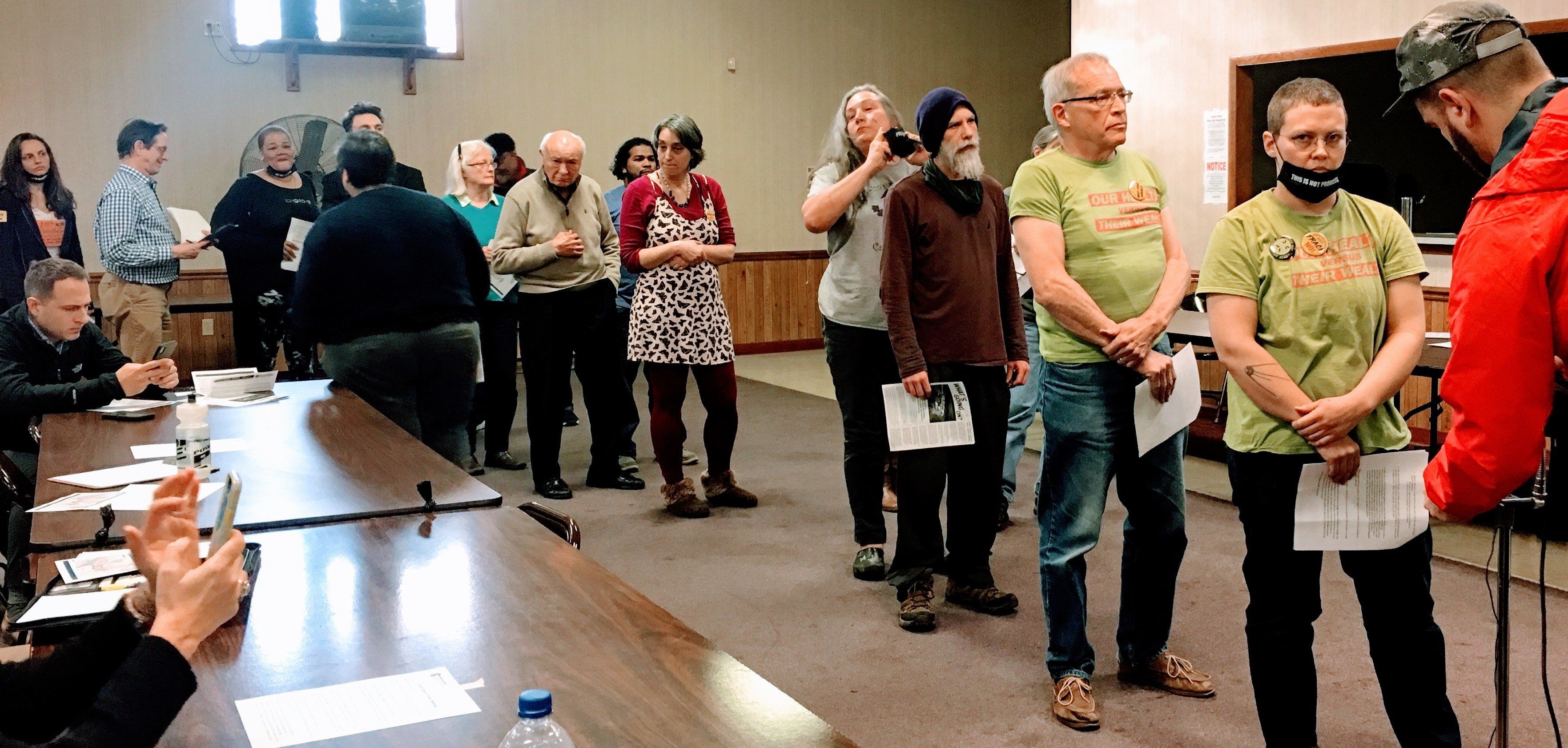
Under the plan, New Mexico-based Merrion would drill an unconventional horizontal well, or a "fracking" well, on part of U.S. Steel's property to provide the facility with natural gas.
Fracking, another name for hydraulic fracturing, is a process of extracting oil and gas by drilling deep wells and injecting liquid at high pressure. The practice has been linked with a range of health effects including skin, genital, and urinary issues, low birth weights, asthma, and depression. It has been banned by New York, Vermont, and Maryland, along with a growing number of U.S. counties and foreign countries like France, Germany and Ireland.
Densely populated, urban neighborhoods in Allegheny County surround the proposed well sites. The drilling infrastructure would primarily be located in North Versailles Township, but would also extend to East Pittsburgh and North Braddock.
Those communities include designated "Environmental Justice Areas," or census tracts where 20 percent or more individuals live in poverty, and/or 30 percent or more of the population is minority. Several of the residents who spoke pointed out that the racial makeup of the mostly-white panel did not mirror the racial makeup of the community members in the room, about a quarter of whom were people of color.
The representative from the Office of Environmental Justice, tasked with keeping the discourse civil during the meeting, noted that while the Pennsylvania Department of Environmental Protection has environmental justice policies in place, they're a bit of a "moving target:" The policies are not enforceable laws.
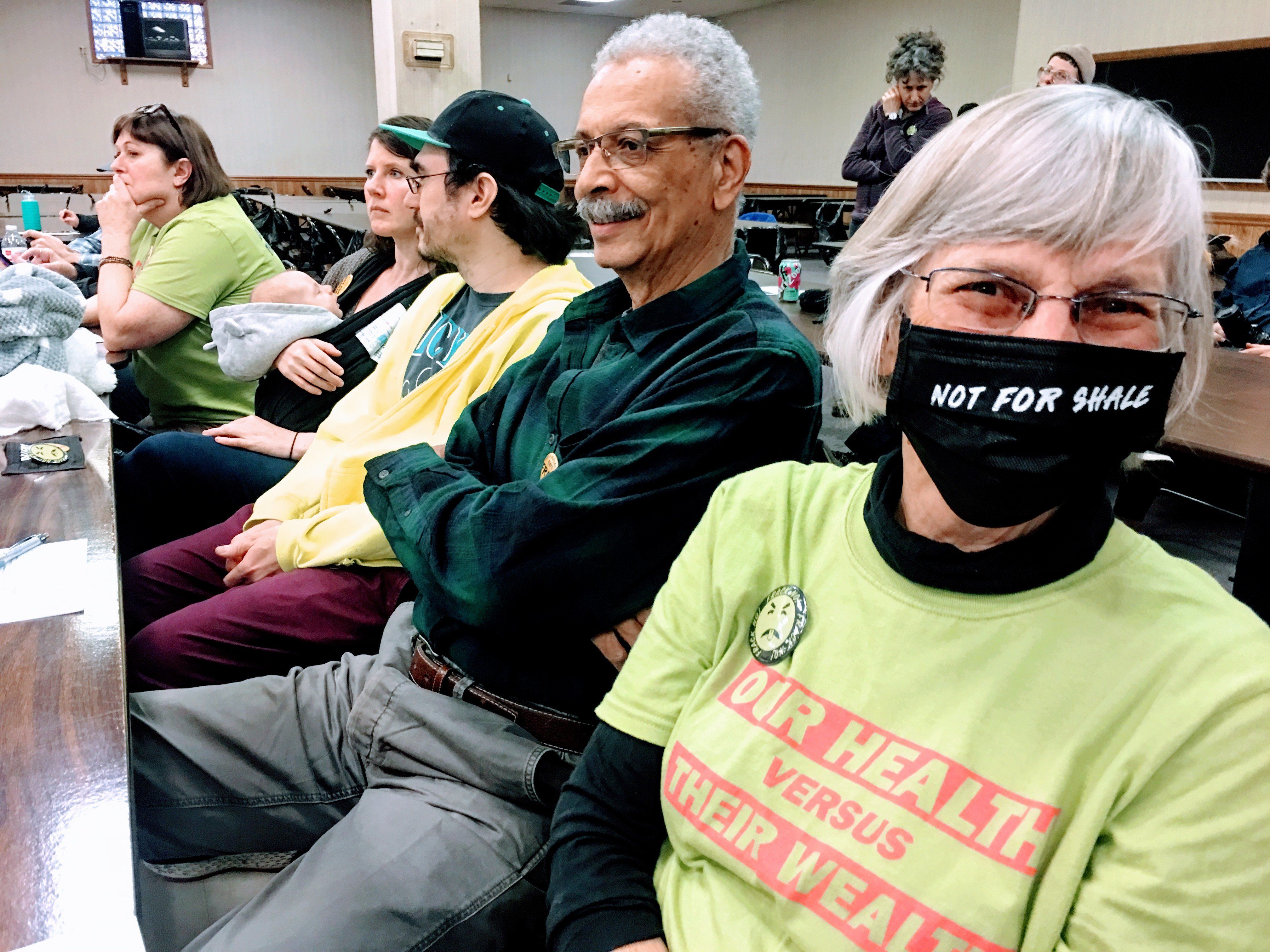
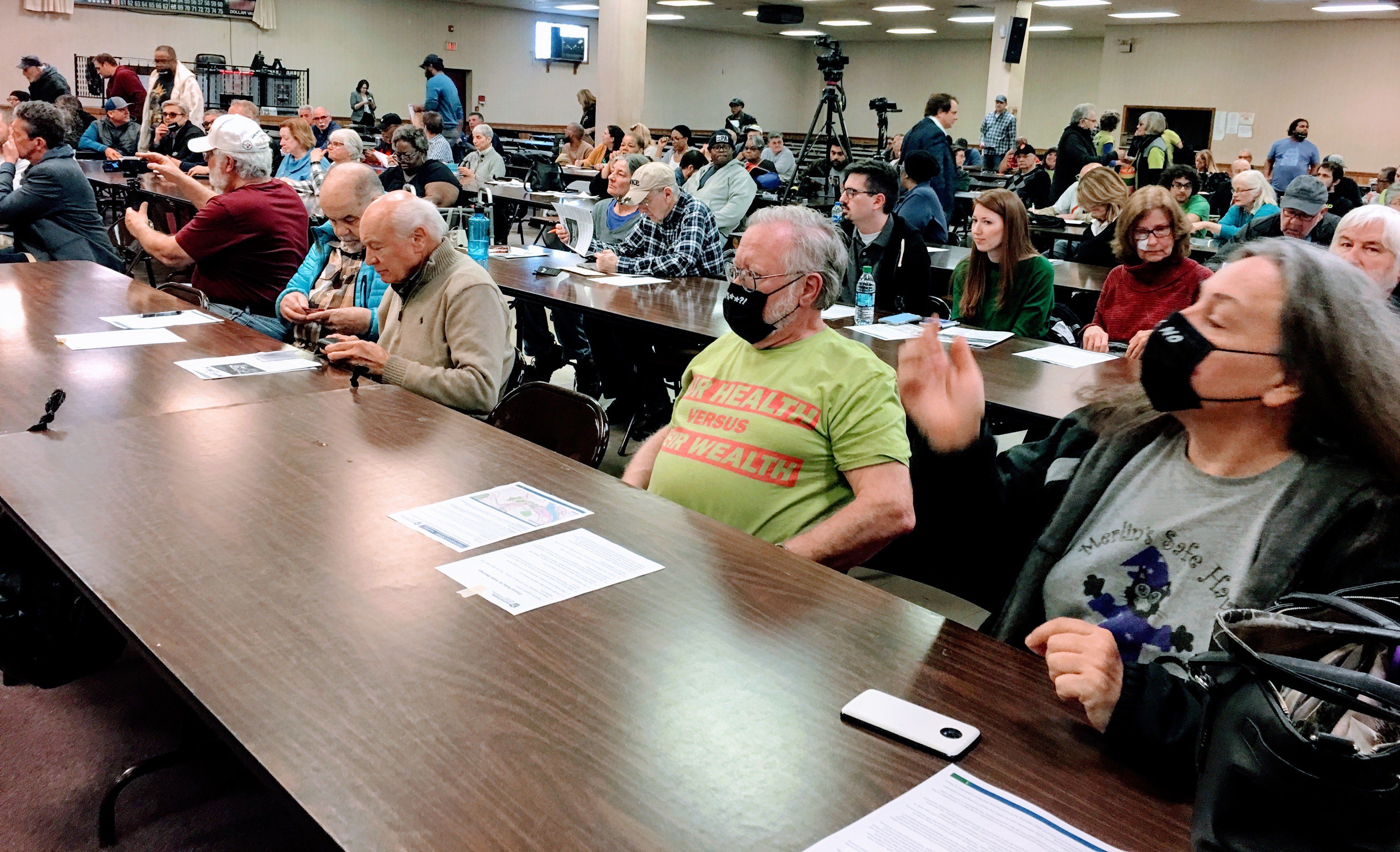
Merrion operates many conventional wells throughout the country, but this is the first unconventional or fracking well the company has ever proposed to drill, and their first well of any type in Pennsylvania, which has a unique topography.
Ryan Merrion, the great grandson of the founder of Merrion Oil and Gas, was in attendance. He and the other representatives from Merrion, U.S. Steel, and the Department of Environmental Protection wore suits and sat at long tables before microphones at the front of the room. Public attendees were asked to leave all protest signs outside the building. So instead many members of the audience wore black face masks with white lettering bearing messages like "Frack no" and "not for shale" or T-shirts reading "Our health vs. their wealth" and "Don't frack the E.T. Mill."
Heckling from the audience was frequent throughout a brief PowerPoint presentation from Merrion spokesperson Ryan Davis, which included statements about being a family company that prioritizes safety above all else, a slide emphasizing Merion's experience operating fracking wells in other urban areas, and a review of the company's plans to mitigate perceived safety concerns (video below).
Braddock community meeting on fracking at the Edgar Thomson millwww.youtube.com
The first person to take the microphone asked, to thunderous applause, why the community wasn't given access to the projector and invited to give a PowerPoint presentation, as Merrion had been.
When a representative from the Office of Environmental Justice repeatedly stated that they would not "take sides," a community member responded, "You're the Department of Environmental Protection. You're supposed to be on the side of protecting the environment."
Many residents raised concerns about increased traffic on Route 30 after a Merrion representative stated that it would receive the increased truck traffic associated with fracking. Last year, a landslide caused a stretch of the highway to collapse, destroying an apartment building, and residents worried that the increase of heavy vehicle traffic could cause a similar event.
Braddock community meeting on fracking at the Edgar Thomson millwww.youtube.com
Merrion operations manager Ryan Davis stated that the increased truck traffic was temporary and would reach a high volume only during the initial drilling phase. DEP spokesperson Scott Perry stated that the agency is not evaluating erosion near the highway as part of their permit review for the project.
Residents also repeatedly questioned how the project would benefit the community and why they should accept it. Davis answered that legally required impact fees will be distributed to the state and paid out to impacted municipalities.
"It's not our job to ask whether a project is good or bad for a community," answered DEP spokesperson Scott Perry. "Fundamentally, from DEP's perspective, this is a land use issue."
Many community members clearly felt frustrated by Perry's response. One heckler demanded to know whose job it was to decide whether the project was good or bad for the community, and how they could talk to them.
Others raised concerns about increased air pollution, an ongoing problem in the Pittsburgh area, and cited the statistic that children in the region's most polluted neighborhoods have asthma rates more than double the national average.
The DEP spokesperson was quick to say that their agency doesn't regulate air quality in this region and they aren't taking it into consideration while reviewing the three permits they've received for the project. Air quality in the region is overseen by the Allegheny County Health Department, which was not represented at the meeting. Some permitting for the project may need to go through that agency, but those permits have not yet been filed.
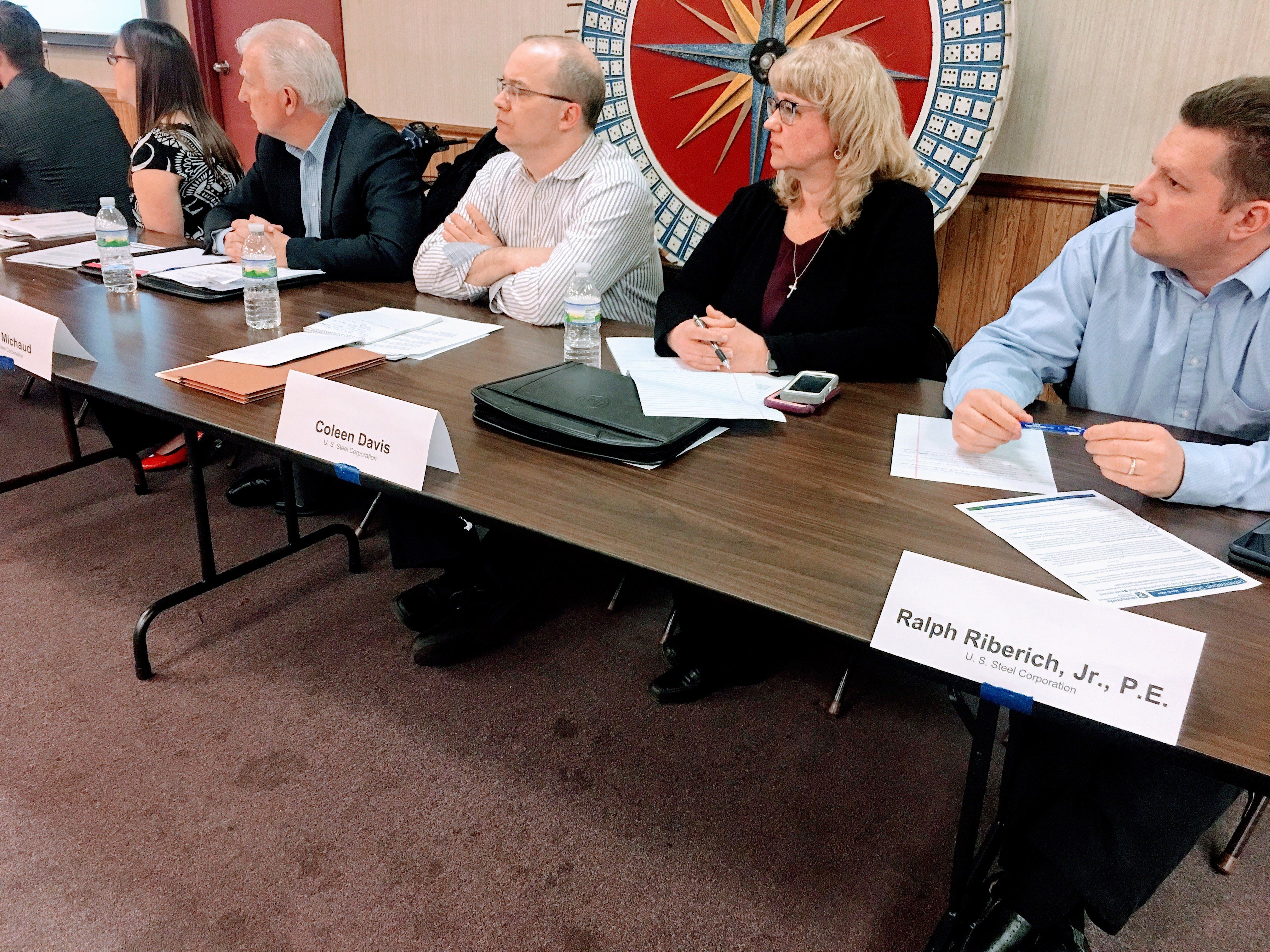
Rachel Priselac, a young mother in attendance said she's hoping to have a second child, but is afraid, knowing that she lives within two miles of the proposed wells and that research has shown infants born in close proximity to fracking operations have low birth weights.
"I can not eat lunch meat or sushi," she said. "I can do everything else you're supposed to do while you're pregnant. But what I can't do is pick up and move my family away from our home because you have chosen to drill here. 21,000 people live in this community. How many of those are children, or people who want to have children?"
Many audience members also stated that they don't trust U.S. Steel due to their long history of clean air regulation violations and their history of contention with union workers, and asked why they should expect this project to go any differently.
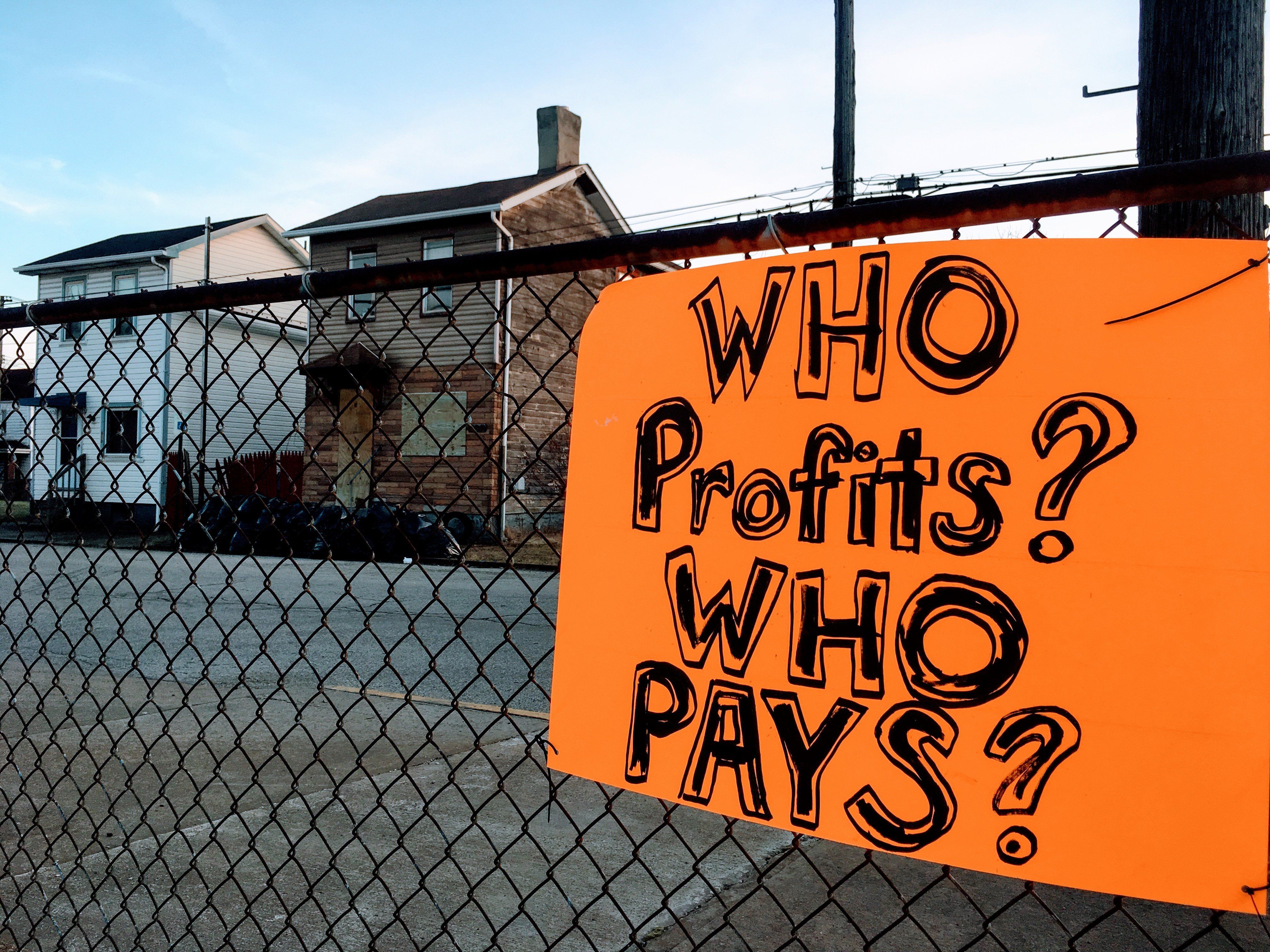
"My dad worked for U.S. Steel his whole life," said resident Tony Buba. "When I was a kid, my family was eating surplus cheese and peanut butter when the union went on strike because U.S. Steel didn't want to pay workers what they deserved. So my dad helped get the workers today the good contracts they have, but one thing he told me was, 'Never trust U.S. Steel.'"
He added, "In this community, we have to fight for everything. We had to fight for two years to try and save [our only] hospital. We have to fight for kids to feel safe in school. We have to fight for public transit so people can even get to their jobs. We have to fight for police to get proper training so they don't continue to shoot our children in the back."
Last year an East Pittsburgh police officer shot unarmed 17-year-old Antwon Rose in Braddock. The shooter was acquitted last week, and protests erupted throughout the greater Pittsburgh region.
"Meanwhile, we're riddled with asthma and cancer from pollution," Buba added. "We're exhausted. But as you can tell here today, we still won't stop fighting."



